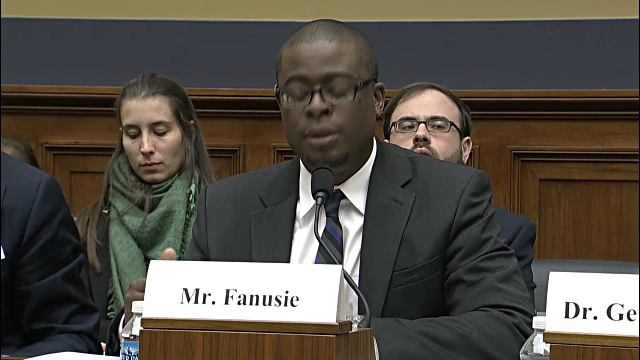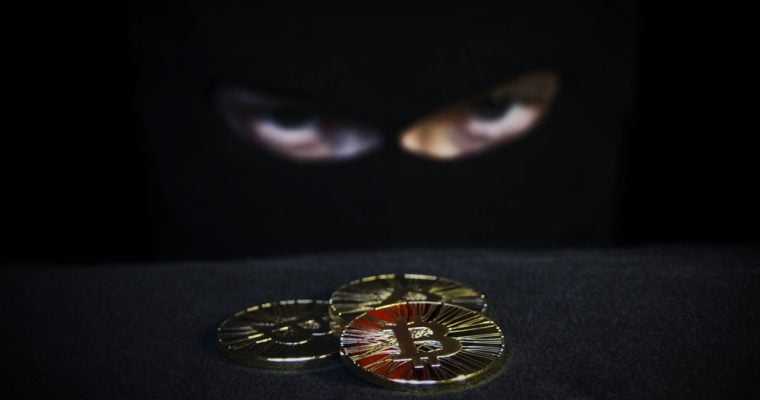Latest news about Bitcoin and all cryptocurrencies. Your daily crypto news habit.

In prepared testimony given before the U.S. House of Representatives Financial Services Committee, Yaya Fanusie, director of analysis for the Foundation for Defense of Democracies, explained how though terrorists have tried to raise funds through cryptocurrencies, instances are rare to non-existent. Instead, groups seeking to cause mayhem much prefer good, old cash.
Also read: Bitcoin ATMs Targeted by Malware for Sale in Underground Markets
Terrorists Prefer Cash to Cryptocurrency to Fund Efforts
“The good news is that most terrorists, particularly those operating on jihadist battlefields, inhabit environments that are not currently conducive to cryptocurrency use,” Mr. Fanusie clarified for an anxious U.S. Congress Subcommittee on Terrorism and Illicit Finance this week. “They usually need to purchase goods with cash (which is the most anonymous funding method), often in areas with unreliable technology infrastructure. In addition, cryptocurrencies are based on distributed ledger (blockchain) technology, where users’ pseudonymous transactions are recorded for public viewing. This leaves a trail that unsophisticated users may find difficult to obfuscate. However, as digital currency usage grows, such barriers may fall away.”
It turns out, Mr. Fanusie is something of a trope killer for crypto. This isn’t the first time he’s disabused Congress of its assumption decentralized digital money is a force for evil. He worked for the better part of a decade at the CIA as a counterterrorism analyst. He routinely had the ears of the US military, White House policy wonks, and law enforcement. He even personally briefed then-President George W. Bush on the spectre of threats as far back as 2008.“Cold hard cash is still king,” Mr. Fanusie continued, “but jihadist groups are building diverse portfolios. Illicit actors adopt new technologies earlier than the broader public. When paper checks, credit cards, and Paypal each emerged, criminals exploited them early on. There are enough case studies of jihadist groups experimenting with cryptocurrencies to suggest that law enforcement and the intelligence community must prepare for terrorists to try to exploit digital tokens as the technology spreads.”
Connection Still a Little Fuzzy; Job Security
The crypto currency committee has been fighting connections to terrorism put forward by governments since the day politicians discovered Bitcoin existed. As these very pages summarized, “The first conflation of digital currencies and terrorism actually stems from a 2008 paper in the Richmond Journal of Law and Technology in which the author stated that ‘[terrorists] seeking to avoid detection have turned to other methods of transferring money, such as commodities trades, hawala, and digital currencies.’ In defining this latter phrase, the report referenced a paper entitled ‘The Cyber-Front in the War on Terrorism: Curbing Terrorist Use of the Internet.’ It was published in 2005. That’s right, terrorists allegedly using digital currencies is older than bitcoin itself.”
And the test for enthusiasts has always been: if in fact bitcoin core or some other crypto was used during a terrorist act, such news would be sounded to the heavens. That neither has seemingly happened is telling. For experts such as Mr. Fanusie, merely dismissing the threat won’t get him invited back to hearings. So, anyone wishing to maintain intellectual integrity, yet hope to keep their job, seem to have to thread a testimonial needle. Sure, an expert might have to admit terrorists are not using it, but they could!
“Cryptocurrencies may become the way we transact in the future,” Mr. Fanusie concludes. “But they are also becoming part of the illicit financing toolkit available to terrorists. FDD’s Center on Sanctions and Illicit Finance (CSIF) has now documented cryptocurrency fundraising campaigns run by social media entities associated with the Islamic State and al-Qaeda. Although public evidence indicates that terrorist groups have had only limited success so far with cryptocurrency fundraising efforts, the rising profile of digital currency has been accompanied by jihadist networks experimenting with them more frequently. By preparing now for terrorists’ increasing usage of cryptocurrencies, the U.S. can limit the ability to turn digital currency markets into a sanctuary for illicit finance,” thus preserving his and his policy group’s return invitations to Congress for years to come.
Is use by terrorists a real problem for cryptocurrency adoption going forward? Let us know in the comments section below.
Images courtesy of Shutterstock.
Need to calculate your bitcoin holdings? Check our tools section.
Disclaimer
The views and opinions expressed in this article are solely those of the authors and do not reflect the views of Bitcoin Insider. Every investment and trading move involves risk - this is especially true for cryptocurrencies given their volatility. We strongly advise our readers to conduct their own research when making a decision.


